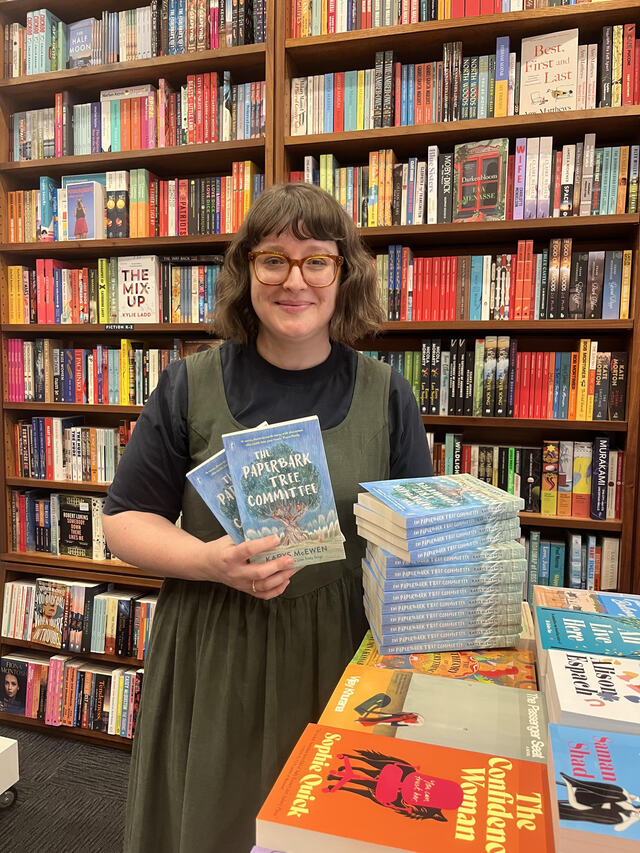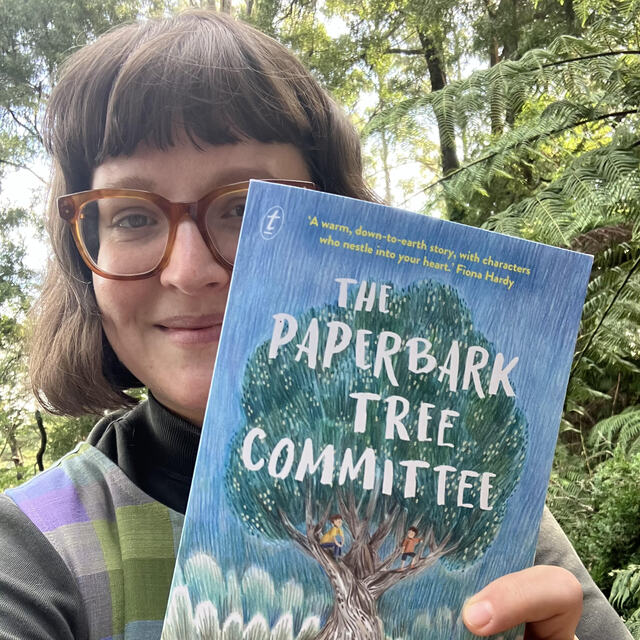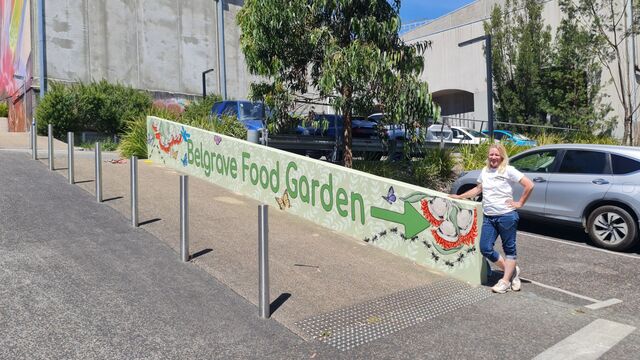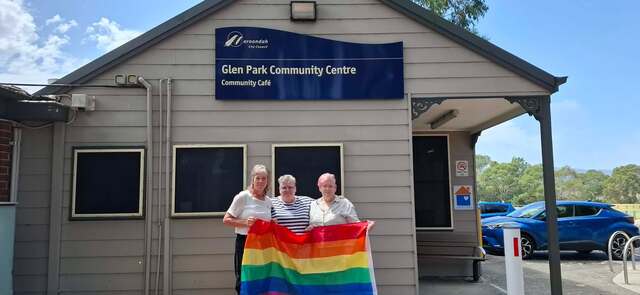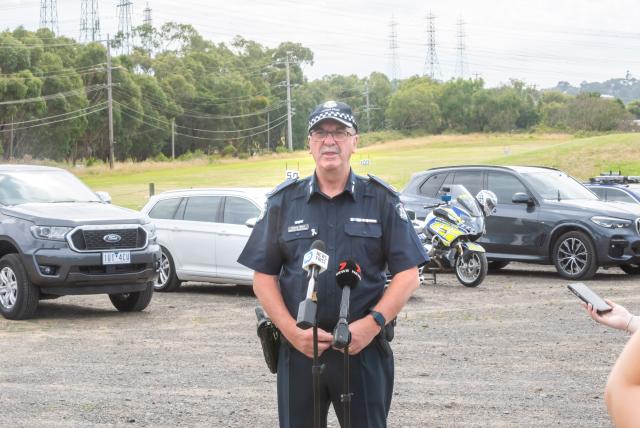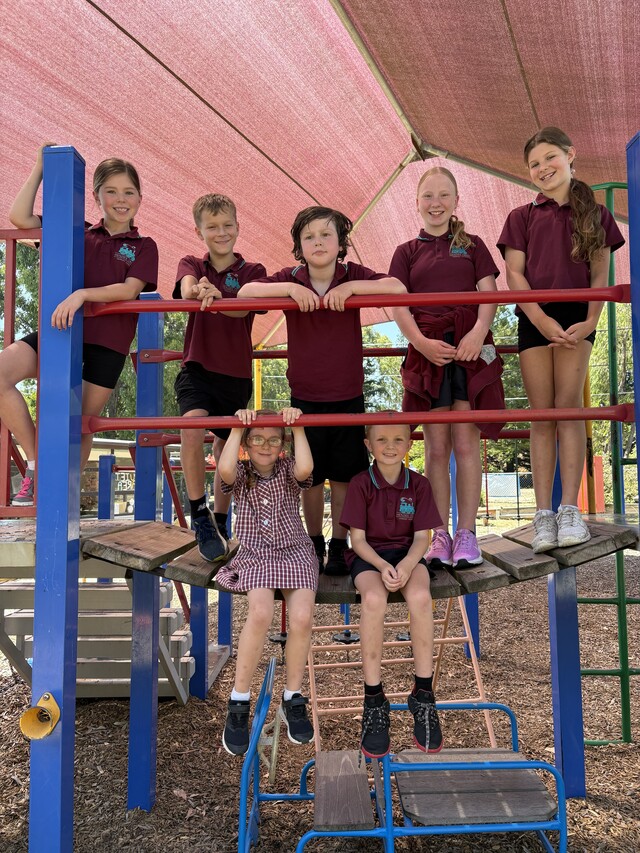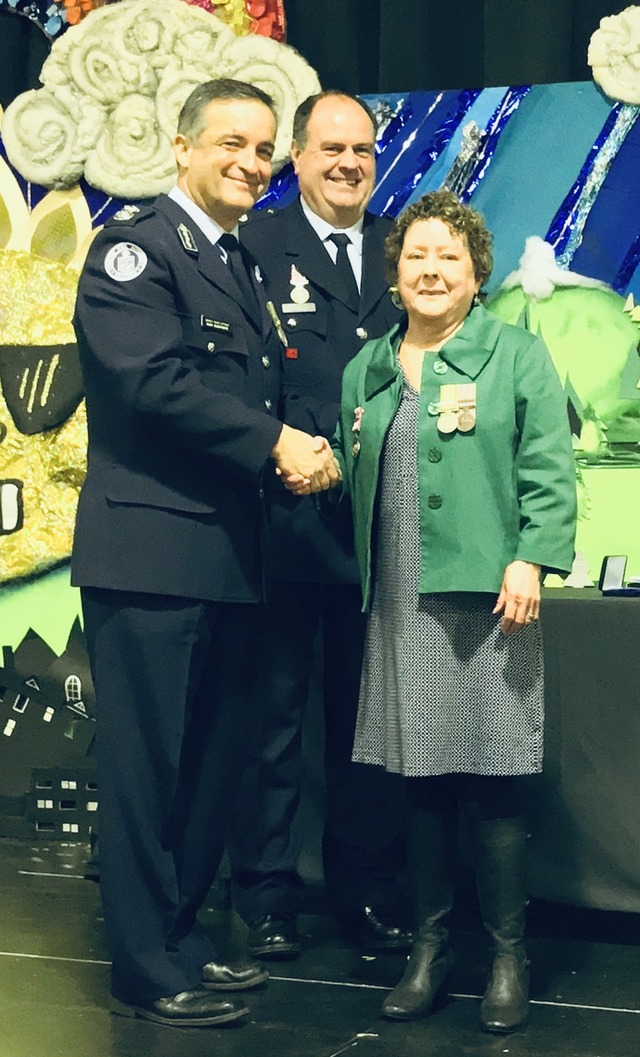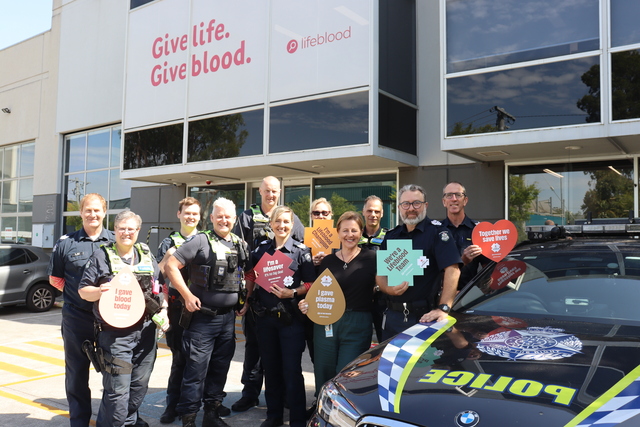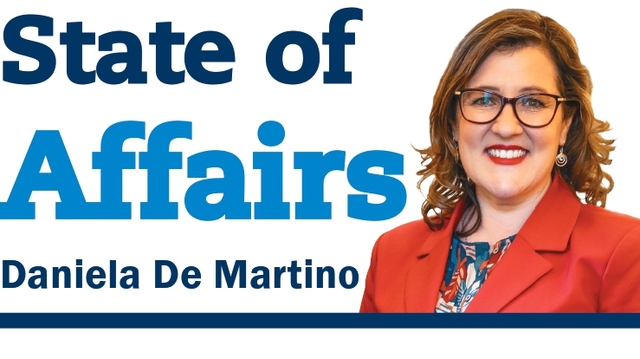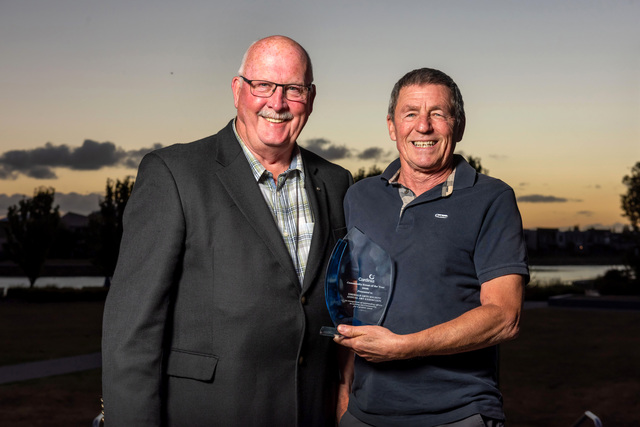Olinda author Karys McEwen has released her second novel, ‘The Paperbark Tree Committee’ – a timely and touching story that feels especially relevant right now, as so many young boys quietly wrestle with questions about who they are and where they fit in.
The book follows 12-year-old Art, a quiet boy who’s starting to feel a little out of place in the world. He’s caught in that awkward stage between childhood and adolescence – where the games you used to love feel silly, friendships start to shift, and you begin to wonder where exactly you belong.
The book was set in Melbourne, the story itself was written in a much quieter corner of the world.
Ms McEwen, who lives in Olinda with her partner, wrote the entire book in public libraries throughout the Dandenong Ranges – from Belgrave to Monbulk and even Bunjil Place, the book came to life among the bookshelves and reading rooms of the hills on a April this year.
She struggled to write at home – instead, she found comfort and focus in the quiet corners of Dandenong Ranges libraries, where the story slowly came to life.
The inspiration for the story came from a student at the school where Ms McEwen works as a librarian.
He came up to her one day and asked for a book about a “regular boy, going through regular life.”
Not a superhero, not in a fantasy world – just a boy like him. Ms McEwen realised there weren’t many stories like that out there for boys his age, and decided to write one herself.
She also wanted to explore the bond between siblings – something close to her own heart, being an older sister herself. That dual spark became ‘The Paperbark Tree Committee’.
In the book, Art and his younger brother Hilary are close, they’re not just brothers, they’re mates. But as Art grows older, he starts to pull away. He feels like he has to be more mature, like he’s growing out of the games they used to play together – like climbing their favourite paperbark tree.
There’s a quiet tension in their relationship, and Art feels the weight of being the older sibling, trying to set a good example while also figuring out who he is himself.
For Ms McEwen, writing from the perspective of a young boy was a challenge, but one she felt ready for.
“I work with teenage boys every day, I know how thoughtful and kind they can be. I wanted to show that side – to offer a more positive, realistic portrayal,” she said.
“There’s this idea that teenage boys are all trouble, but the boys I know just want to be good people. They’re trying to work it all out, just like everyone else.”
Though the story is fiction, there’s something very real about it – something familiar.
Ms McEwen grew up in a small town in Western Australia, and she said that life in Olinda reminds her a bit of that upbringing – the trees, the sense of community, the quietness and that calm, reflective energy is woven throughout the book.
The Olinda author has long been deeply involved in the world of children’s literature beyond her own writing.
She reads extensively for her work, volunteers with the Children’s Book Council of Australia, and has played a key role in shaping the Melbourne Writers Festival’s school programs.
She’s always been passionate about helping young people discover books they truly connect with, she’s particularly dedicated to encouraging reading at a time when so much media attention is focused on the decline of teenage readers.
“When I was a teenager, I read to feel less alone,” she said.
“I hope this book can do that for someone else – especially for kids who are feeling out of place. It’s not a loud book. It’s about an ordinary kid with ordinary problems. But I hope it feels real, and maybe comforting too.”
‘The Paperbark Tree Committee’ is now available in bookstores across the country, and Ms McEwen encourages readers to support their local independent booksellers.
She’s proud of the story, but even more proud that it’s already resonating with young readers.

